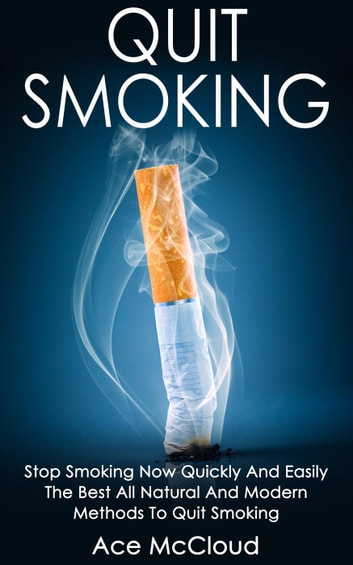Transformative Journey: A Comprehensive Timeline of Benefits from Quitting Smoking
Embarking on the transformative journey of quitting smoking is a decision that echoes beyond the individual, reaching into the realms of improved health and overall well-being. In this comprehensive guide, we unveil the detailed timeline of benefits derived from stopping smoking, aiming to empower and inform those on the path to a smoke-free life.
Immediate Benefits
First 24 Hours: Quick Relief and Detox Kickstart
The first 24 hours without cigarettes mark a crucial period of immediate relief. As the body initiates the detoxification process, individuals experience a sense of liberation from the shackles of smoking. This quick relief sets the stage for the positive changes that unfold in the following days and weeks.

Improved Breathing: Opening Pathways to Well-Being
With smoking cessation, the respiratory system undergoes rapid improvements. Airways open up, allowing for better oxygen flow and enhanced breathing. This section delves into the physiological changes that contribute to the immediate sense of well-being and vitality experienced when one quits smoking.
First Week Milestones
Detoxification Unveiled: Clearing Toxins from the System
Entering the first week without cigarettes is akin to embarking on a detoxification journey. The body actively works to eliminate accumulated toxins. Understanding this process is crucial, providing individuals with insights into the positive changes happening within their bodies during this initial phase of smoking cessation.
Restoration of Senses: Taste and Smell Rediscovered
One of the remarkable milestones within the first week is the gradual restoration of the senses of taste and smell. This section explores the sensory transformations that occur, emphasizing the significance of reconnecting with these often dulled senses after quitting smoking.
First Month Transformations
Enhanced Lung Function: A Breath of Fresh Air
As individuals progress through the first month of quitting smoking, the positive changes in lung function become increasingly evident. Improved airflow and a reduction in respiratory stress contribute to an enhanced ability to breathe deeply. This section explores the physiological transformations that lead to a breath of fresh air and improved respiratory health within the initial month of quitting.
Boosted Energy Levels: Igniting Vitality
Quitting smoking triggers a boost in energy levels, providing individuals with newfound vitality. This surge in energy is a result of improved oxygen circulation, allowing the body to function more efficiently. Discover how the decision to quit smoking not only benefits the lungs but also invigorates overall physical and mental well-being.
Three Months In Celebrating Progress
Reduced Coughing: Clearing the Respiratory Path
As the journey extends to three months without smoking, individuals often experience a significant reduction in persistent coughing. This indicates the body’s successful adaptation to a smoke-free environment. This section explores the diminishing respiratory symptoms and the positive impact on daily comfort and quality of life.
Cardiovascular Health Boost: A Stronger Heart
At the three-month mark, the cardiovascular system undergoes notable improvements. The heart becomes stronger, pumping blood more efficiently. Learn how quitting smoking positively influences cardiovascular health, reducing the risk of heart-related issues and contributing to an overall healthier circulatory system.
Six Months: Sustaining Gains and Lifestyle Adjustments
Solidifying Smoke-Free Habits: Building a Foundation
Reaching six months of a smoke-free lifestyle is a significant milestone. This period is about consolidating the positive changes and reinforcing smoke-free habits. Explore strategies for building a resilient foundation that supports continued success in maintaining a smoke-free life.
Addressing Weight Concerns: Balancing Health
Weight gain is a common concern during smoking cessation. This section addresses this issue with practical tips for maintaining a healthy weight while quitting smoking. It emphasizes the importance of balanced lifestyle adjustments and physical activity in achieving overall well-being.
One-Year Milestone Achieved
Reflecting on Health Milestones: A Year of Triumph
Reaching the one-year mark of a smoke-free life is a momentous occasion that calls for reflection and celebration. This section highlights the health milestones achieved during this transformative year, emphasizing the positive impact on respiratory health, cardiovascular well-being, and overall vitality. Recognize and celebrate the triumphs that come with a sustained commitment to a smoke-free lifestyle.
Strategies for Maintenance: Sustaining a Smoke-Free Life
As individuals transition into the second year of being smoke-free, maintaining this lifestyle becomes paramount. This section provides practical strategies for sustaining a smoke-free life, including ongoing support systems, lifestyle adjustments, and the cultivation of healthy habits. Explore tips for navigating potential challenges and ensuring long-term success in maintaining a smoke-free existence.
Beyond One Year: Long-Term Health Rejuvenation
Diminished Disease Risks: A Continuing Journey Beyond the one-year mark, the long-term health benefits of quitting smoking become increasingly evident. Explore how the risk of diseases such as cancer, heart issues, and respiratory ailments continues to diminish. This section emphasizes the enduring positive impact on overall health and the potential for a longer, healthier life.
Psychological Well-Being: Thriving Beyond Quitting
The journey to lasting health extends beyond the physical realm. Quitting smoking positively influences psychological well-being, contributing to increased resilience, improved mood, and enhanced mental clarity. Discover the transformative effects of smoking cessation on emotional and psychological health as individuals thrive beyond the act of quitting.
Tips for Success: Building a Supportive Environment
Creating a Support Network: Allies on the Quitting Journey
Building and maintaining a strong support network is crucial for success in quitting smoking. This section provides insights into creating a supportive environment, involving friends, family, and possibly support groups. Discover the power of shared experiences and encouragement in navigating the challenges and celebrating the victories of a smoke-free life.
Utilizing Technology: Apps and Tools for Motivation
In the digital age, technology can be a powerful ally in the journey to quit smoking. Explore the use of apps and online tools designed to provide motivation, track progress, and offer support. From quit-smoking apps to online communities, discover the technological resources that can enhance motivation and contribute to long-term success.
Frequently Asked Questions (FAQs) About Quitting Smoking
Q: What benefits can I expect in the first 24 hours of quitting smoking?
A: Within the first day, you may experience quick relief, improved breathing, and the initiation of the detoxification process.
Q: How can I manage cravings during the first week of quitting?
A: Stay hydrated, distract yourself, and consider support tools like nicotine replacement therapy to cope with cravings.
Q: Will quitting smoking lead to weight gain, and how can I address it?
A: Weight gain is common, but regular exercise and mindful eating can help manage it. Focus on overall well-being.
Q: What changes occur in lung function during the first month of quitting?
A: Improved lung function and enhanced respiratory health are notable positive changes within the initial month.
Q: How can I navigate challenges during the early stages of quitting smoking?
A: Acknowledge challenges, develop coping mechanisms, and seek support from friends, family, or support groups.
Q: What psychological benefits can I expect after three months of quitting?
A: Stabilized mood, increased focus, and a sense of accomplishment are common psychological improvements.
Q: How can I sustain gains and address potential weight concerns at six months?
A: Solidify smoke-free habits, incorporate regular exercise, and be mindful of your eating habits to maintain a healthy lifestyle.
Q: What milestones can I celebrate after one year of being smoke-free?
A: Reflect on reduced disease risks, improved respiratory function, and the overall positive impact on your life.
Q: How do I build a supportive environment for quitting smoking?
A: Create a network of supportive friends and family, use technology and apps for motivation, and consider joining support groups.
Q: Are there long-term health benefits beyond one year of quitting?
A: Yes, beyond one year, enjoy lowered risks of cancer and heart issues, improved psychological well-being, and increased vitality.
Conclusion:
In conclusion, the decision to quit smoking is a transformative journey that unfolds over time, bringing forth a multitude of health benefits and positive life changes. This comprehensive exploration of the timeline of benefits of quitting smoking has aimed to provide valuable insights, encouragement, and practical tips for individuals on this empowering path.




